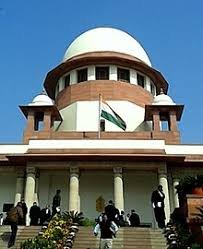This judgment from the Supreme Court of India resolves a “legacy dispute” concerning the levy of purchase tax under Section 5A of the Kerala General Sales Tax Act, 1963, and the pari materia provision of Section 7A of the Tamil Nadu General Sales Tax Act, 1959. The core issues presented for consideration were:
Whether the purchase of goods by dealers was exempt from tax due to notifications or statutory exemptions under the respective Acts, or if such a purchase was “liable to tax” within the meaning of the relevant sections.
Specifically, if an appellant-assessee purchased goods that were exempt from sales tax or bought them from dealers who were exempt from sales tax, was the assessee still liable to pay purchase tax under Section 5A or 7A1?
Whether the purchase tax, as imposed by these sections, was ultra vires the Constitution because it purportedly functioned as a tax on manufacture, consignment, or an inter-state levy.
The judgment notes that the legal issues discussed are largely of historical significance, as they are no longer relevant under the current legal framework following the enactment of the Value Added Tax in 2005 and the Goods and Services Tax Acts in 2017.
Law Involved
The judgment primarily interprets and applies provisions from two key statutes:
Kerala General Sales Tax Act, 1963: Specifically Section 5A, which deals with the levy of purchase tax.
Tamil Nadu General Sales Tax Act, 1959: Specifically Section 7A, the pari materia provision to Kerala’s Section 5A1. Other relevant sections include Section 3 (charging provision), Section 8 (exemption from tax), Section 17 (government’s power to notify exemptions and reductions), and Section 18 (power to fix maximum turnover).
Both Acts contain definitions for terms like “dealer,” “goods,” “sale,” and “total turnover” which are central to the interpretation.
The constitutional dimension of the case involves Article 265 of the Constitution of India, which states that no tax shall be levied or collected except by authority of law.
The Court’s reasoning is built upon and distinguishes numerous previous judgments, including:
M.K.Kandaswami and Others.
Goodyear India Ltd. and Others.
Hotel Balaji and Others.
Devi Dass Gopal Krishan Pvt. Ltd. and Others.
Yusuf Shabeer and Others
Malabar Fruit Products Company.
T.S. Govindarajulu Naidu
Bhawani Cotton Mills.
Peekay Re-Rolling Mills (P) Ltd..
Reasoning
The Supreme Court’s reasoning primarily focused on the interpretation of the phrase “liable to tax” and the impact of exemptions on purchase tax liability:
Meaning of “Liable to Tax”: The Court clarified that “goods, the sale or purchase of which is liable to tax under the Act” refers specifically to goods whose sale or purchase is subject to tax under the charging sections (e.g., Section 3, 4, or 5) of the respective Acts, at a specified rate and point of levy. It rejected a broader interpretation that “liable to tax” could mean goods that could potentially be brought to tax under Section 5A/7A regardless of exemptions.
Effect of Exemptions on Purchase Tax: A crucial aspect of the reasoning is that if a sale of goods is exempt from sales tax, either by a notification (e.g., under Section 17(1) of the Tamil Nadu Act) or by virtue of a statutory exemption (e.g., a minimum turnover threshold as in the Malabar Fruit Products Company case), then those goods are considered “exempt goods” and are not “liable to tax” for the purpose of attracting purchase tax under Section 5A or 7A.. The Court emphasized that the exemption from sales tax at the point of sale serves as a precondition for the applicability of Sections 5A or 7A.
Precedent Alignment and Distinction: The judgment affirmed the reasoning in M.K.Kandaswami and Yusuf Shabeer, which supported the view that if a sale is exempt, purchase tax does not apply. The Court acknowledged the divergence with the broader interpretation found in Goodyear India Ltd. (which dealt with the Haryana Act) but clarified that the concept of “levy” (imposition of tax) is distinct from “assessment” (determination of tax liability). The Goodyear interpretation regarding the applicability of purchase tax even if goods were transformed or despatched inter-state was deemed misplaced in the context of exemption notifications.
Constitutional Validity Challenge: The Court rejected the argument that the purchase tax provisions were ultra vires. It reaffirmed that the power to levy purchase tax falls within the State Legislature’s competence. The taxable events, such as the use of goods in manufacture, their despatch outside the state, or disposal other than by sale within the state, are legitimate and distinct concepts from inter-state trade or consignment. The argument concerning the rate of tax under Section 7A was also dismissed.
Holding
The Supreme Court held that for goods to be subject to purchase tax under Section 5A of the Kerala General Sales Tax Act, 1963, or Section 7A of the Tamil Nadu General Sales Tax Act, 1959, they must be “liable to tax” in the sense that their sale or purchase is not exempt under other provisions of the Act163. Therefore, if the sale of goods is statutorily exempt, or exempt through specific government notifications, or if the selling dealer’s turnover is below the taxable threshold, the purchase of those goods by the assessee is not subject to purchase tax.
The Court upheld the constitutional validity of the purchase tax provisions, asserting that the State Legislature has the authority to levy such taxes and that the specified taxable events are legitimate.
Conclusively, the appeals from the State of Tamil Nadu were allowed, overturning High Court judgments that contradicted this interpretation. Conversely, decisions by the High Court of Kerala in Malabar Fruit Products and Yusuf Shabeer, which aligned with this view, were approved. All existing stay orders were vacated, and pending applications were disposed of without any costs.
C.T. Kochouseph V. State Of Kerala And Another Etc.
Supreme Court: 2025 INSC 661: (DoJ 09-05-2025)






